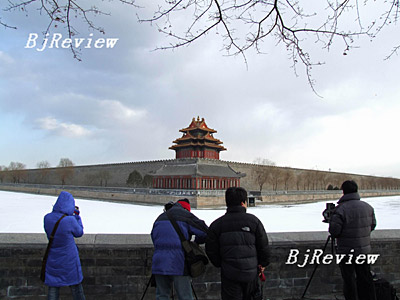
Sometimes, the most effective diplomatic relations between two countries happen at the local level. Non-profit organization Sister Cities International pairs municipalities in the U.S. with those abroad, pushing a mission of "citizen diplomacy" for cultural understanding and economic development. The organization was launched in 1956 during a conference held by President Dwight D. Eisenhower to encourage peace in the post-World War II era.
"From a mission standpoint we haven't changed that much. We were as in high demand during the Cold War as we are today and the idea of connecting people across cultures has outstanding benefits today just as it did fifty years ago," said Patrick Madden, Executive Director of the Washington, D.C.-based group.
Nearly 700 communities in the United States are connected with 1,794 communities in 134 countries through the program. Many U.S. cities have multiple sister cities. Chicago and Oakland, Calif., each have 25 sister cities. The first sister city relationship with China was formed in 1979, between San Francisco and Shanghai.
"By and large there is a lot of interest in the U.S. to partner with Chinese sister cities, and there is just as much in China to connect with U.S. cities," Madden said, adding that the interest from the Chinese side spans from the Central Government level down to grassroots organizers.
Establishing direct ties between cities, and focusing on grassroots programs, will help Americans to see beyond what they read in newspapers or hear in political speeches and understand China on a more personal level.
"Often, we get caught up in the media hype or the upper-level dialogue, and the reality is that we're all human beings with commonalities. I think Sister Cities International plays a very important role whenever delegations or exchanges happen," he said. "There is a ripple effect. When 10 people go on an exchange, they talk to 10 people when they get back to the States, who talk to another 10 people, and so on. It is really something that has an effect locally, regionally, and eventually, nationally."
Youth exchanges are an important part of the Sister Cities' mission, and a student exposed to cross-cultural experiences today may grow up to be a political or business leader tomorrow.
"It's the opportunity to transform their life. Their perspective goes from what they know in their home, or neighborhood, or city, or even in their country, and transforms them into thinking about the world very differently than when you, for example, learn about a country on the Internet," Madden said. "Living in someone's home for a few months or a year or even on a shorter exchange, you're seeing a part of America or seeing a part of China that you can't read about."
Madden said he recently met with a delegation from China, who were seeking even more city pairings between the two countries. The future is bright for even greater amounts of "citizen diplomacy" between the two, he said.
"I anticipate continued growth in relationships between American sister cities and Chinese sister cities," Madden said.
(Reporting from New York) | 